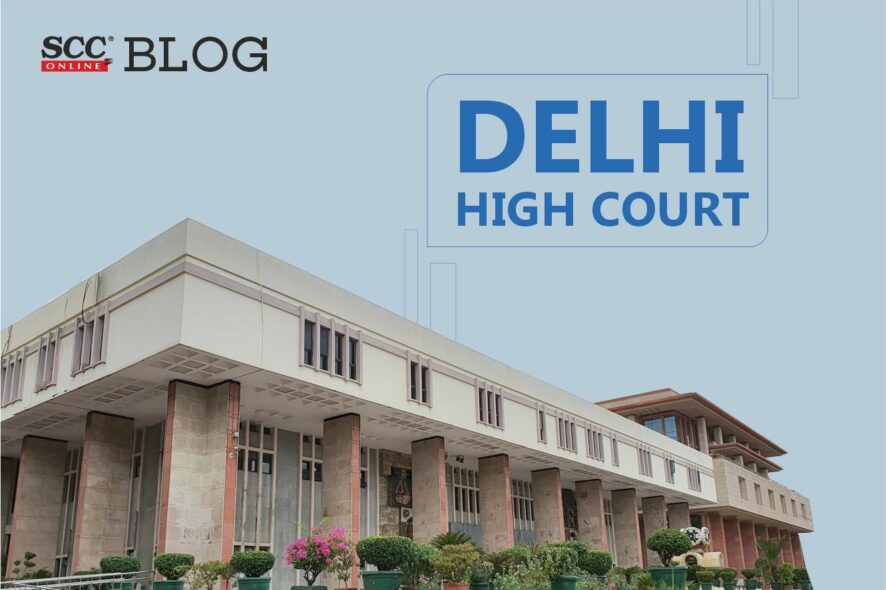Delhi High Court: A Division Bench of Suresh Kumar Kait and Saurabh Banerjee, JJ. granted compassionate allowance to widow of Late Naik Krishanpal Singh ‘the petitioner who worked as a Guard at CISF and was dismissed from service on certain grounds. The allowance was granted as the case of the petitioner falls under the category of “special consideration” in view of Rule 41 Central Civil Services (Pension) Rules, 1972 ‘CCS (Pension) Rules, 1972′.
The Late Naik Krishanpal Singh joined CISF as Guard and he was charged with assault on a Head Constable using the rifle butt during plant checking in the year 1994 and consequently, was dismissed from service. The appeal was preferred by him against his dismissal order which was further dismissed by the competent authority, against which he filed a writ before the instant Court, which was again dismissed for non-appearance. This present petition was filed by his wife upon rejection of her mercy petition seeking compassionate allowance on the ground that her husband had served the State ‘respondent’ from the year 1972 till 1994, thereby rendered 24 years of service and that she is living under poor economic condition and therefore, her case falls under the category of “deserving special consideration” and, so, she is entitled to the get the benefit of provisions of Rule 41, CCS (Pension) Rules, 1972.
Counsel for petitioner submitted that as per Rule 41, CCS (Pension) Rules, 1972, the competent authority may sanction compassionate allowance in special and deserving cases.
Reliance was placed on Mahinder Dutt Sharma v. Union of India, (2014) 11 SCC 684 wherein it was held “when an employee is dismissed for reasons other than those involving moral turpitude dishonesty towards employer and loss to a third party, then such a punished employee’s case may be considered for grant of compensatory allowance under Rule 41, CCS Pension Rules, 1972 by the competent authority. Hence, it is prayed that respondents be directed to pay compensatory allowance to petitioner to enable her to meet her livelihood. “
In light of the relied judgment, it was noted that, Supreme Court held that it is not possible to define the term “deserving special consideration” and the circumstances deserving special consideration would ordinarily be unlimited, keeping in mind the unlimited variability of human environment. The Supreme Court while allowing the claim of petitioner held that the claim of petitioner was misdirected as all the authorities on the administrative side, Tribunal or even the High Court merely examined the legitimacy of the dismissal order, whereas the basis for determination of the compassionate allowance should have been whether the petitioner deserved “special consideration” under the provisions of Rule 41 CCS (Pension) Rule, 1972.
Reliance was further placed on Ex. L/NK Mahabir Prasad v. Union of India, (2010) SCC OnLine Del 2909, wherein the official, who was dismissed from service on account of unauthorized absence from duty after 23 years of service, had sought compassionate allowance on the ground that he belonged to a poor and backward family, had no land and source of income for his livelihood and the Division Bench had allowed the appeal under the provisions of Rule 41 CCS (Pension) Rules, 1972.
The Court noted while deliberating upon the mercy petition filed by the petitioner, the respondents seem to have ignored Rule 41, CCS (Pension) Rule, 1972.
The most important consideration before the Court is whether the present case falls under the category of “special consideration” or not.
The Court opined that time and again the petitioner, the widow of late Naik Krishanpal Singh, has been running pillar to post to get relief for her survival and that of her family. The present petition was filed in the year 2019. As on the filing of the present petition, petitioner, widow of late Naik Krishanpal Singh is aged 60 years old and is said to be living in distress economic condition.
The Court thus held the case of petitioner deserved “special consideration” under the provisions of Rule 41 of CCS (Pension) Rules, 1972.
The Court further directed respondents to “grant compassionate allowance to the petitioner from the date of filing of the present petition with consequential benefits thereof, as well as clear the arrears thereto, within four weeks.”
[Shiksha v. Union of India, 2022 SCC OnLine Del 1863, decided on 04-07-2022]
Advocates who appeared in this case :
Ajit Kakkar, Advocate, for the petitioner;
Manish Mohan and Devendra Kumar, Advocates, for the Union.
*Arunima Bose, Editorial Assistant has reported this brief.







